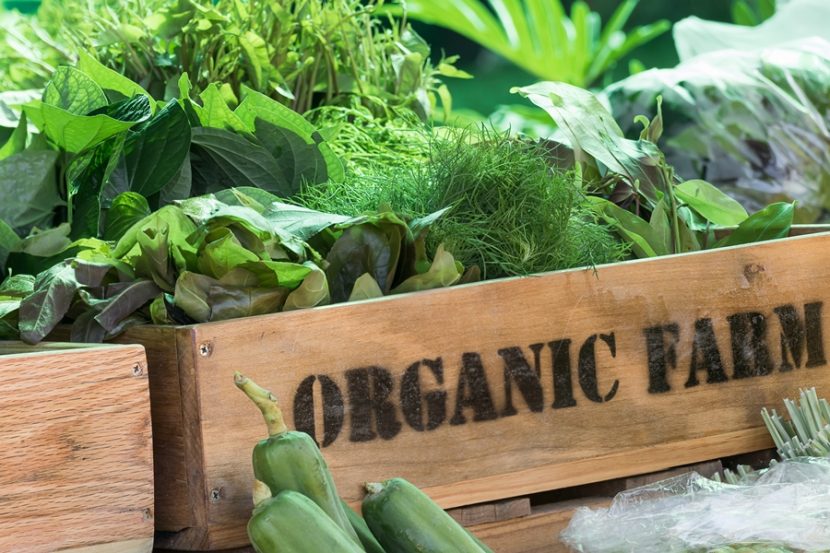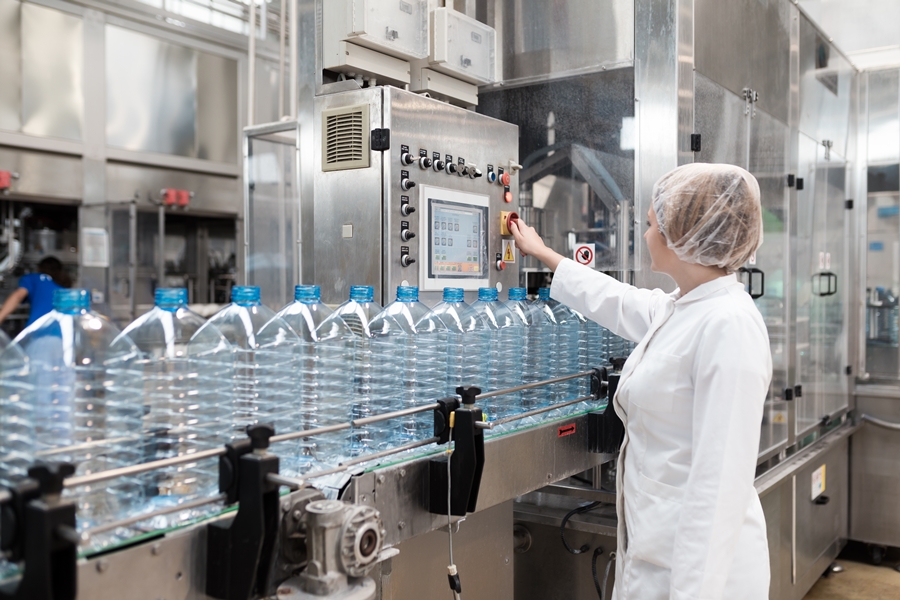Tap into a Large and Growing Market by Getting Certified Organic
Posted: Tuesday, January 29, 2019
By Lois Harris
As global demand for organic food and beverages continues to outstrip supply, more and more manufacturers are exploring ways to profit from the trend. The potential payoff is huge. Zion Market Research predicts that the worldwide organic food and beverage market will reach more than $323 billion by 2024—up from $125 billion in 2017, for an annual growth rate of more than 14%.
Having a robust food safety system goes a long way in helping to meet organic standards and obtaining certification. Medium-sized and large food manufacturers that have a team in place that can ensure compliance with food safety requirements are well-positioned to embark on organic production. And many start-ups are meeting all the requirements of both sets of standards.
“Food safety standards operate in parallel with organic standards,” says Eric Payseur, who has recently become Regional Events and Education Manager, Eastern Ontario, for Canadian Organic Growers. Prior to his new position, Payseur spent three years as an Ontario representative for Ecocert, an international organic certification body with 30 offices in 26 countries. “Larger clients tend to have good record keeping, so the documentation part of certification is easier,” he adds.
The Goal of Organic Certification
He notes that the main goal of organic certification is to provide consumers with the assurance that the ingredients and processes used to make the product are truly organic.
The Organic Trade Association says that “organic foods are minimally processed without artificial ingredients (colour, flavour) or synthetic preservatives to maintain the integrity of the product that began with practices on the farm.”
Food safety standards operate in parallel with organic standards
Generally, that also means using ingredients that are not genetically modified, grown using synthetic pesticides or fertilizers or raised (in the case of meat) using growth hormones. Only permitted substances are allowed before and during production, including the cleaners and packaging used.
No matter how big or small a plant is, the same national organic standards apply. In the United States, they are governed by the United States Department of Agriculture, and in Canada, the Canadian Food Inspection Agency (CFIA) regulates organic certification.
Payseur says the cost of organic certification varies depending on the size of the organization and the scope of its manufacturing operations.
“If you have 100 SKUs, it takes a lot more time and effort versus a start-up with one product,” he says.
Confirmation of Compliance
In Canada, the CFIA ensures the process is the same at all certifying bodies: an initial contact will be followed up by a pre-review of the full application. Once compliance with the standard is confirmed with documentation, an inspector is sent to the plant to physically verify the paper work. Finally, the inspector’s report is reviewed by another person before the certificate can be issued.
Companies need to be audited once a year to maintain organic certification, and extensions are allowed in extenuating circumstances.
Payseur says that organic and conventional products can be manufactured using the same equipment as conventional food products, providing ingredients and cleaners are on the permitted substance list.
“Say you make 12 conventional granola bars and get an order for three organic bars,” he said. “Monday and Tuesday can be organic days and Wednesday through Saturday can be conventional production days.”
Payseur says staff at certification organizations will only evaluate the ingredients and processes that they already have in place, not advise on how to develop those processes.
“There are many consultants who can provide this kind of assistance to manufacturers,” he says.
Key takeaway for processors? Ensure compliance with both food safety and organic regulations to support your brand and support consumer health and well-being.
About the Author
Lois Harris is the principal freelance writer and editor at Wordswork Communications, where she’s dedicated to helping food and agricultural industries get their stories told. She works with food manufacturers, non-profit organizations, governments and universities to develop targeted materials that inform, convince and sell.

-
 FeaturedRisk management
The Cost of a Breach: What a Cyberattack Could Mean for Food Safety Recalls
FeaturedRisk management
The Cost of a Breach: What a Cyberattack Could Mean for Food Safety Recalls
-
 FeaturedRisk management
Securing the Food Chain: How ISO/IEC 27001 Strengthens Cybersecurity
FeaturedRisk management
Securing the Food Chain: How ISO/IEC 27001 Strengthens Cybersecurity
-
 FeaturedRisk management
Revolutionizing Food Safety Training: Breaking Out of the “Check-the-Box” Mentality
FeaturedRisk management
Revolutionizing Food Safety Training: Breaking Out of the “Check-the-Box” Mentality
-
 GFSI Standards
GFSI 2025: Building Trust, Tech-Forward Solutions, and Global Unity in Food Safety
GFSI Standards
GFSI 2025: Building Trust, Tech-Forward Solutions, and Global Unity in Food Safety
-
 FeaturedFood Safety
Integrated Pest Management: Strategies to Protect Your Brand’s Reputation
FeaturedFood Safety
Integrated Pest Management: Strategies to Protect Your Brand’s Reputation
-
 FeaturedFood Safety Culture & Training
No Open Door Policy: Challenges That Impact Pest Control in Food Processing Plants
FeaturedFood Safety Culture & Training
No Open Door Policy: Challenges That Impact Pest Control in Food Processing Plants




